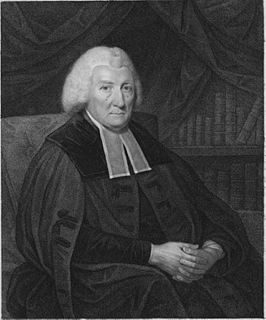A Quote by David Hume
.. that which renders morality an active principle and constitutes virtue our happiness, and vice our misery: it is probable, I say, that this final sentence depends on some internal sense or feeling, which nature has made universal in the whole species.
Related Quotes
Disease is the misery of our belief, happiness is the health of our wisdom, so that man's happiness or misery depends on himself. Now, as our misery comes from our belief, and not from the thing believed, it is necessary to be on the watch, so as not to be deceived by false guides. Sensation contains no intelligence or belief, but is a mere disturbance of the matter, called agitation, which produces mind, and is ready to receive the seed of error. Ever since man was created, there has been an element called error which has been busy inventing answers for every sensation.
I am convinced that human nature is basically affectionate and good. If our behavior follows our kind and loving nature, immense benefits will result, not only for ourselves, but also for the society to which we belong. I generally refer to this sort of love and affection as a universal religion. Everyone needs it, believers as much as non-believers. This attitude constitutes the very basis of morality.
It is an exquisite and beautiful thing in our nature, that, when the heart is touched and softened by some tranquil happiness or affectionate feeling, the memory of the dead comes over it most powerfully and irresistibly. It would seem almost as though our better thoughts and sympathies were charms, in virtue of which the soul is enabled to hold some vague and mysterious intercourse with the spirits of those whom we loved in life. Alas! how often and how long may these patient angels hover around us, watching for the spell which is so soon forgotten!
Human nature itself is evermore an advocate for liberty. There is also in human nature a resentment of injury, and indignation against wrong. A love of truth and a veneration of virtue. These amiable passions, are the "latent spark" . . . If the people are capable of understanding, seeing and feeling the differences between true and false, right and wrong, virtue and vice, to what better principle can the friends of mankind apply than to the sense of this difference?
This must be our belief when we have a correct knowledge of our own self, and comprehend the true nature of everything; we must be content, and not trouble our mind with seeking a certain final cause for things that have none, or have no other final cause but their own existence, which depends on the Will of God, or, if you prefer, on the Divine Wisdom.
Religion informs us that misery and sin were produced together. The depravation of human will was followed by a disorder of the harmony of nature; and by that Providence which often places antidotes in the neighborhood of poisons, vice was checked by misery, lest it should swell to universal and unlimited dominion.
To some it may seem old-fashioned to speak of virtue and chastity, honesty, morality, faith, character, but these are the qualities which have built great men and women and point the way by which one may find happiness in the living of today and eternal joy in the world to come. These are the qualities which are the anchors to our lives, in spite of the trials, the tragedies, the pestilences, and the cruelties of war which bring in their wake appalling destruction, hunger, and bloodshed
If we could sufficiently understand the order of the universe, we should find that it exceeds all the desires of the wisest men, and that it is impossible to make it better than it is, not only as a whole and in general but also for ourselves in particular, if we are attached, as we ought to be, to the Author of all, not only as to the architect and efficient cause of our being, but as to our master and to the final cause, which ought to be the whole aim of our will, and which can alone make our happiness.
The several difficulties here discussed, namely our not finding in the successive formations infinitely numerous transitional links between the many species which now exist or have existed; the sudden manner in which whole groups of species appear in our European formations; the almost entire absence, as at present known, of fossiliferous formations beneath the Silurian strata, are all undoubtedly of the gravest nature.








































